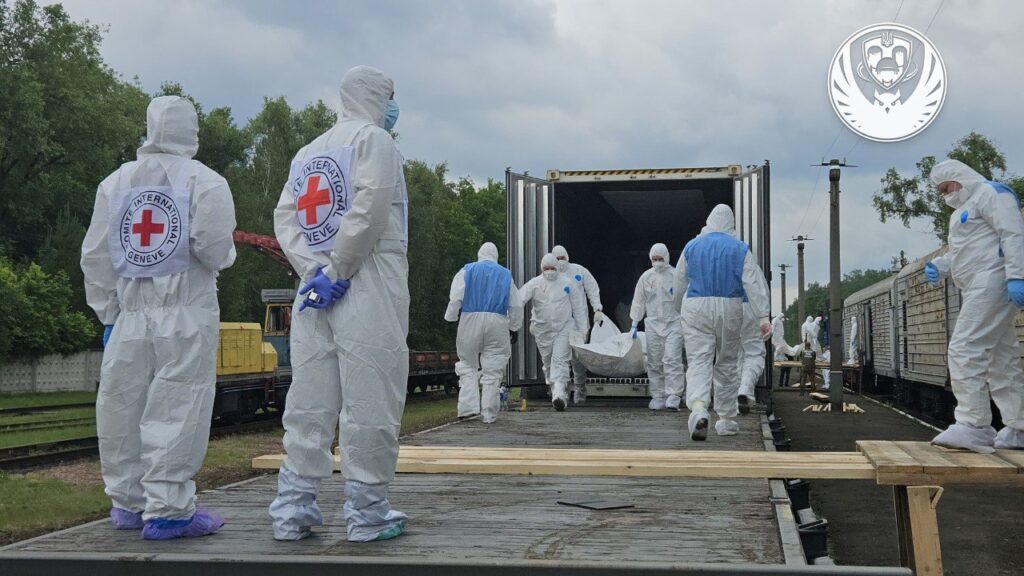
Ukrainian officials have denied Russian claims that Kyiv failed to participate in a prisoner of war (POW) exchange and body repatriation effort planned on 6 June, saying no official date had yet been agreed upon.
Amid the ongoing Russo-Ukrainian war, Russia “remains committed to promoting narratives that vilify Ukraine, likely to socialize its domestic audience ahead of Russia’s possible rejection of any peace agreement in the future and to discredit Ukraine on the international stage,” ISW says.
The Institute for the Study of War (ISW) reported on 7 June that Russian officials publicly accused Ukraine of refusing to engage in an exchange of POWs and bodies of killed in action (KIA) soldiers.
According to ISW, the claims were made by Russian Presidential Aide Vladimir Medinsky, Russian GRU Deputy Chief Alexander Zorin, and Deputy Defense Minister Alexander Fomin. They alleged that Russia was prepared to hand over severely wounded and sick POWs, those under the age of 25, and approximately 6,000 KIA bodies as agreed in Istanbul on 2 June.
Zorin further claimed that Russian representatives had waited on the Belarusian border for the Ukrainian side to finalize technical details of the exchange. Russian Foreign Ministry Spokesperson Maria Zakharova and Federation Council Committee Deputy Chair Andrei Klimov also echoed accusations that Ukraine refused to accept the return of the bodies.
Ukraine refutes Russian claims
In response, the Ukrainian Coordination Headquarters for the Treatment of POWs denied all Russian allegations. The office clarified that no date for the repatriation had yet been set and emphasized that lists for the POW exchange were still being finalized between both sides.
The Ukrainian headquarters reaffirmed Ukraine’s “full commitment” to constructive engagement aimed at ensuring the successful implementation of both the KIA repatriation and POW exchange agreements.
“The Kremlin’s unwillingness to engage in good faith in lower-level confidence building measures designed to facilitate larger peace negotiations further demonstrates Russia’s disinterest in peace negotiations,” ISW wrote.
You could close this page. Or you could join our community and help us produce more materials like this.
We keep our reporting open and accessible to everyone because we believe in the power of free information. This is why our small, cost-effective team depends on the support of readers like you to bring deliver timely news, quality analysis, and on-the-ground reports about Russia's war against Ukraine and Ukraine's struggle to build a democratic society.
A little bit goes a long way: for as little as the cost of one cup of coffee a month, you can help build bridges between Ukraine and the rest of the world, plus become a co-creator and vote for topics we should cover next.
Become a patron or see other ways to
support.
Become a Patron!


